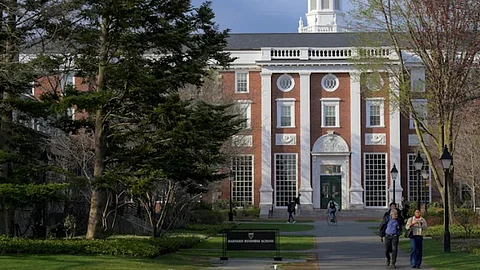

Harvard University has sharply criticized the Trump administration's decision to revoke its certification to enroll international students, calling the move “unlawful” and warning it could cause lasting harm to both the institution and the nation.
The decision, announced amid an ongoing Department of Homeland Security investigation, comes as part of a broader federal crackdown on elite universities. Homeland Security Secretary Kristi Noem accused Harvard of fostering antisemitism, encouraging campus violence, and maintaining inappropriate ties with the Chinese Communist Party. As a result, the university has lost its Student and Exchange Visitor Program (SEVP) certification, barring it from accepting international students.
“This administration is holding Harvard accountable... It is a privilege, not a right, for universities to enroll foreign students,” Noem stated, adding that the university had multiple chances to comply with government demands but chose not to.
Harvard, in a strong rebuttal issued Friday, condemned the decision as a retaliatory act with far-reaching consequences. “This retaliatory action threatens serious harm to the Harvard community and our country, and undermines Harvard’s academic and research mission,” said university spokesperson Jason Newton.
Harvard hosts over 6,000 international students from more than 140 countries, making up 27.3% of its student body during the 2024–2025 academic year. The university emphasized the vital contributions of international students, not just academically and culturally, but financially as well. According to Harvard, these students often pay closer to full tuition compared to domestic students, making their presence a significant source of revenue.
The federal action follows a previous blow last month, when the White House froze $2.2 billion in federal funding to the university. The Trump administration had laid out conditions for reversing the funding freeze—conditions Harvard reportedly declined.
The university says it is working urgently to support affected students and scholars, and reaffirmed its commitment to maintaining its global academic partnerships despite the federal sanctions.
This move marks a dramatic escalation in the Trump administration’s second-term campaign to reshape higher education, particularly targeting institutions it accuses of political bias and policy noncompliance.
(This story is published from a syndicated feed)